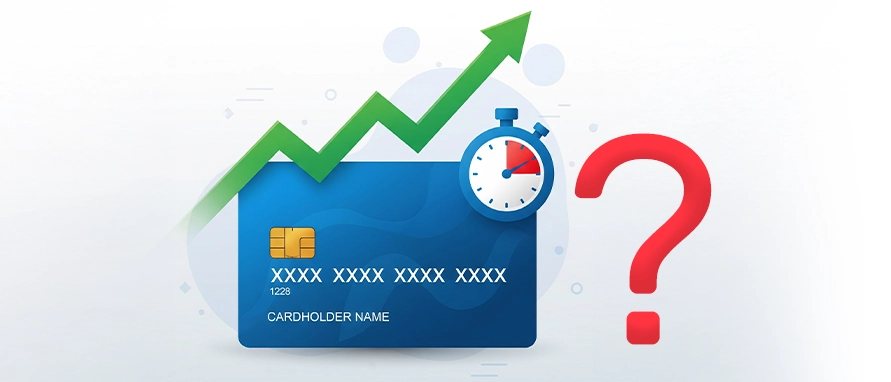Requesting a credit card limit increase at the right time is crucial for approval and financial benefit. Here are ideal scenarios when you should consider asking for an increase:
Improved Credit Score
A substantial improvement in your credit score is one of the strongest signals to lenders that you are a responsible borrower. Your credit score reflects your history of managing debt, making payments on time, and maintaining low credit utilisation.
Let’s say your CIBIL score has risen from 650 to above 750, it shows that you have consistently met your financial obligations. This improvement reassures banks that you are less likely to default, increasing the likelihood of approval for a higher credit limit. Regularly checking your credit report and addressing any discrepancies can help you maintain a strong score before applying.
Increased Income
An increase in your income, whether through a salary hike, promotion, or a new higher-paying job, directly affects your repayment capacity. Lenders in India consider your income to assess how much additional credit you can safely handle.
For instance, if your monthly salary has increased by 20%, you can demonstrate to your card issuer that you have more disposable income to manage a higher credit limit. When requesting an increase, providing updated income proof such as salary slips or bank statements strengthens your case and helps the lender accurately evaluate your financial standing.
Lower Credit Utilisation
Credit utilisation is the ratio of your current credit card balance to your credit limit. Maintaining a utilisation rate below 30% consistently indicates judicious credit management. For example, if your credit limit is ₹1,00,000 and you regularly keep your outstanding balance under ₹30,000, it shows lenders that you are not overly reliant on borrowed funds. This behaviour reduces the risk perceived by the bank and increases your chances of a credit limit increase. High utilisation, on the other hand, may signal financial stress and reduce the likelihood of approval.
Consistent On-Time Payments
A strong track record of making payments on or before the due date for at least six months to a year is critical. Timely payments demonstrate financial discipline and reliability, which are key factors lenders evaluate. If you have consistently paid your credit card bills without delays or defaults, it builds trust with your issuer. This history can be a deciding factor in your favour when you ask to increase my credit card limit. Avoid missing payments or making only minimum payments, as these can negatively impact your creditworthiness.
Reduced Debt
Lowering your overall debt burden improves your debt-to-income (DTI) ratio, which lenders closely examine. If you have paid off personal loans, other credit cards, or reduced outstanding EMIs, it signals better financial health. A lower DTI ratio means you have more capacity to take on additional credit responsibly. For example, if your total monthly debt repayments drop from 40% to 20% of your income, it strengthens your case for a higher credit limit. Ensuring your debts are well-managed before applying can increase your chances of approval and help you avoid overextension.
Note: Avoid requesting an increase if you have recently missed payments, applied for multiple new credit accounts, or are close to maxing out your current limit. These are red flags for lenders and may lead to denial.
















